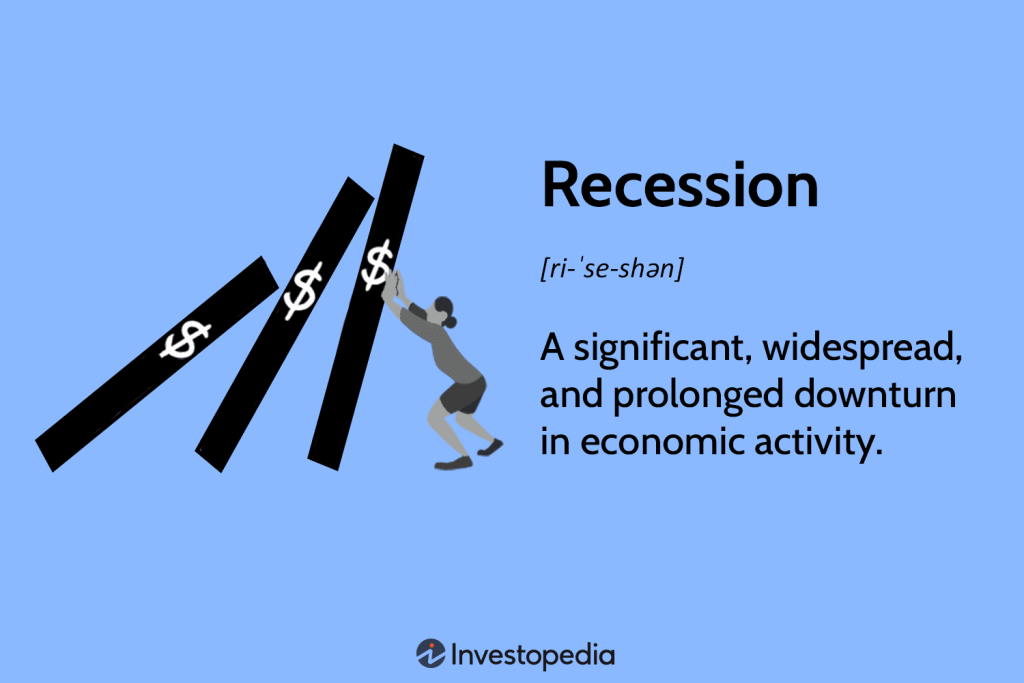A recession is a significant decline in economic activity that lasts for an extended period, typically characterized by a decrease in gross domestic product (GDP), employment, and other economic indicators. These 10 economic factors contribute to a recession:
A key indicator of a recession is negative GDP growth for two consecutive quarters. GDP represents the total value of goods and services produced within a country.
2 – Decreased Consumer Spending.
Consumer spending is a major driver of economic activity. In a recession, consumers often reduce spending due to concerns about the future, job security, or income levels.
3 – Decline in Business Investment.
Businesses may cut back on investments in capital goods and expansion projects during a recession. This reduction in investment can lead to lower productivity and economic contraction.
Job losses and rising unemployment rates are common during a recession. Businesses may cut costs by reducing their workforce, contributing to a decrease in household income and consumer spending.
5 – Reduced Industrial Production.
A recession often results in decreased industrial production as demand for goods and services declines. This can lead to excess capacity and reduced profitability for businesses.
Financial institutions may become more cautious in lending during a recession, leading to a credit crunch. This can make it difficult for businesses and consumers to access financing, further impacting economic activity.
7 – Stock Market Decline.
A significant decline in stock prices can be both a cause and a consequence of a recession. Investors may sell off stocks due to economic concerns, and the declining market can contribute to a negative wealth effect, reducing consumer confidence and spending.
8 – Housing Market Downturn.
The housing market plays a crucial role in the economy. A recession often involves a decline in home values, reduced construction activity, and a slowdown in real estate transactions.
9 – Global Economic Factors.
Economic recessions can be influenced by global factors such as trade tensions, financial crises, or a synchronized global economic downturn. International events can impact a country’s exports, imports, and overall economic health.
10 – Consumer and Business Confidence.
Confidence in the economy, both among consumers and businesses, is a critical psychological factor. During a recession, declining confidence can lead to reduced spending and investment.
It’s important to note that these factors are interconnected, and a combination of several of them can contribute to the onset and persistence of a recession. Policymakers often use various tools, such as fiscal and monetary policies, to mitigate the impact of recessions and support economic recovery.


